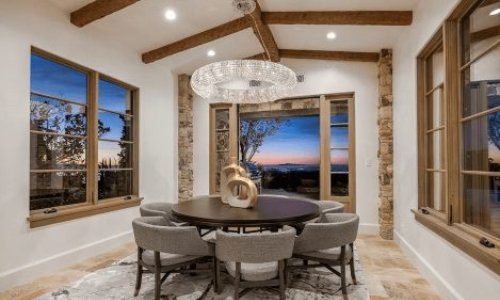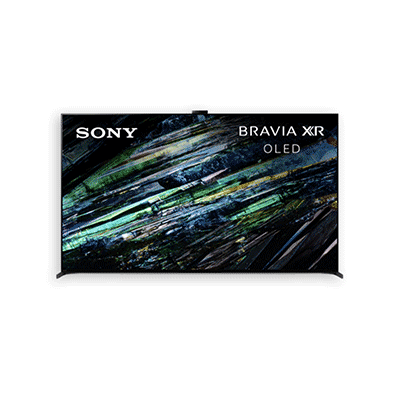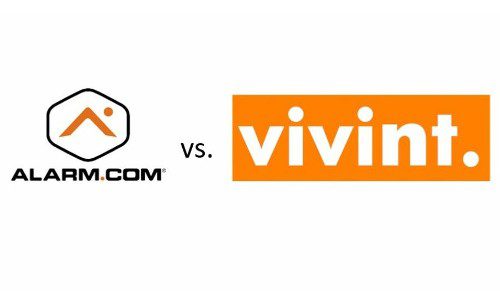When it comes to lessons that Justin Dohman has learned over the years as founder/CEO of Elite AV & Lighting (Elite AVL), he has much to share and is highly enthusiastic in doing so. He and Elite AVL want to do their part to ensure custom integrators and the industry as a whole don’t get a bad rap.
In the continuously sprawling Dallas-Fort Worth metroplex that’s flooded with integration company choices for customers, he is always ready to pass on some of that knowledge in a mentorship role or during friendly networking chats at industry events.
Dohman, who launched Elite AVL when he was in his early 20s, has put his unique perspective and stamp on the brand and in general how to succeed in business and forging beneficial relationships.
Whether it’s doing due diligence on products and suppliers that go well beyond the basics, finding qualified candidates through hiring practices that leverage his paintball friends and competitors, or adapting to add trending technologies to his portfolio such as lighting, Elite AVL (the “L” part recently added because of the massive impact the lighting category has had on the company) has made a name for itself in its competitive local market and the custom channel.
Dohman has stayed true to his beliefs that honesty, hard work and treating people properly pay dividends with potential clients, trade partners and his employees — and it’s paid back handsomely for Elite AVL.

The Future of Digital Lighting & Control
As a custom integrator, lighting is in demand. Effective communication, education and showcasing the value proposition of LED light fixtures in conjunction with integrative control systems are the keys to overcoming challenges and closing sales in this specialized market. Join us as we discuss the future of digital lighting and control with David Warfel from Light Can Help You and Patrick Laidlaw and Mark Moody from AiSPIRE. Register Now!Dohman’s Lessons Learned for Success
After nearly 20 years owning an integration business and his prior experience at hybrid retailer/integration companies Ultimate Electronics and Tweeter, Dohman offered several pieces of advice when asked to provide CE Pro’s standard “FYI (One piece of advice to another dealer)” in our CE Profile “At a Glance” box. The salient suggestions include:
The bitterness of poor quality remains long after the sweetness of low price is forgotten.

“Everyone wants the cheapest price with the best service, but the two cannot go hand in hand. Do not allow your quality to dip because a customer talked you into a cheaper price,” he says.
“They will never remember the amazing discount but will quickly trash your name or leave a negative review if something isn’t 100% to their liking. Once I stopped discounting and started to focus on the quality of installations, my business began growing 20%-50% yearly.”
Presentation matters.
“As a small business owner, you are judged from the second the client receives your business card or views your website/social media. Your timeliness, how fast you deliver your quote, how your quote looks and how professional it is all matter,” he adds.
“Your hygiene matters, wearing a polo shirt or branded t-shirt and clean shoes matter, and the cleanliness of your office and prompt communication matter. Do you want to stick out in their mind as the person who had their stuff together as professionally as possible, or the guy who said he was really good at doing AV but showed up 15 minutes late?”
And certifications, product knowledge, and industry networking are vital.
“If you get too caught up on turning a screwdriver and can never take days to train or sharpen the saw, you will never be viewed as an industry expert. You can learn one thing from even the smallest amount of training, and if you can apply that to every day of work for years then it is worth it,” he notes.
“Do not be afraid to make friends in the industry, ‘but keep your cards close to the chest.’ You never know what future employees you may meet at a training or long-term friends you will make who you can ask for help or advice.”
Toward that latter point’s end, Elite AVL’s certifications include: CEDIA Certified Designer, CEDIA Electronic Systems Designer 2, THX Home Theater Installer Level 2, FOA (Fiber Optic Association), and Control4 Programmer and Installation.
The fruits of following his own advice can be seen in abundance if you check Dohman’s Facebook account, where he frequently posts before, during and after photos and videos of the company’s projects, which highlight Elite AVL’s professionalism, planning and creativity.
Additionally, logging all the details and media assets of the company’s work makes him well-prepared when it’s time to submit entries into industry awards.
“In my head it all makes sense. There’s a story behind everything I do and a reason behind everything I do,” Dohman says. “If I try something once and it doesn’t work, I get rid of it, and if I feel it just adds a little bit of value, I keep it going.”
From Car Stereos to Home Theaters
Dohman grew up in a small town in central Illinois and as a teen he got fanatical about car audio, and thought his career path may lead to opening up a shop to sell brands such as Alpine, Kicker, DD Audio and Rockford Fosgate.
“I love speakers, I love bass; building boxes and enclosures in fiberglass, and getting dirty doing all that stuff, and that led me into the car audio competition scene. I traveled nationally doing that, and then I moved to Texas when I was 18,” recalls Dohman, now 39.

Competitions would take him to Nashville or Florida or Dallas, for instance, and 100 cars would show up to be judged in different classes, like how big the vehicle is, how many amplifiers it has, how many subwoofers, etc. Dohman had a competition car, a little Honda CR-X hatchback that he would modify, with some aid from sponsors, “and try to get it as loud as humanly possible.”
To help fuel his car stereo habit — which he poured all of his disposable income into — Dohman got a job when he moved to Texas right after high school at Ultimate Electronics, before realizing that Tweeter had a much better compensation scale and higher-end customers, he says.
“I quickly jumped ship over there and learned sales. I met a lot of cool people who mentored me and got me to where I wanted to be as far as how to talk to people, how to sell to people,” he explains.
The big-city experience at a respected hybrid retailer filled in real-world life skills that weren’t applicable to Dohman’s rearing around Fairbury, Ill., which he describes as a rural farming community of less than 4,000 people, half of whom engage in a branch of Christianity that doesn’t believe in TVs or electronics.
Between his expertise in automotive audio, burgeoning sales skills and willingness to working 6-7 days a week selling, Dohman soon became Tweeter’s top car audio salesman among 180 stores.

After a few years, however, he discovered that the real financial opportunity — which he saw in the sharply dressed, Mercedes-driving older salespeople — was in home entertainment. “I was like, ‘how am I working so much harder and these guys are making so much more money?’” he recalls.
“There was a lot more money to be made on the home side than the car side, but I knew nothing about home stuff at all, zero.”
Dohman spent the next year deep diving into Internet forums and other online avenues, in the days before YouTube, doing his homework so he would be ready to enter the high-end home AV world.
“I like to know about everything about something to be confident about it before I actually step in front of somebody and say, ‘Now, this is what I suggest is, this is what you need,’ because I don’t want to ever rip somebody off. That’s not who I am,” he says.
“So, I was patient, I learned … and when I got into the home side, the first year I was part of their Premier Club which is the top 2% of all home sales.”
As fate would have it, as soon as Dohman reached that career milestone, Tweeter declared bankruptcy. It was 2006, and he was only 23 but knew he didn’t want to work for someone else again. The time had come for Dohman to launch his own company and do whatever it took to make it work.
Branching Out as His Own Brand with Elite AV
Armed with a solid clientele base predominantly from selling car audio, Dohman began marketing himself to them, informing them he was going out on his own and if they needed any help with their new house he’d love to help. It was still the days before Amazon dominated sales and people were conducting their own searches for $10K plasma TVs and AV receivers.
“I’ll be honest, I’d never installed anything in a house before. I didn’t know what I was doing,” he says. Again, he started doing his homework only this time it was on the installation side. A benefit of Tweeter’s bankruptcy was that he began grabbing liquidation inventory to practice how to hook up AVRs, mount displays, fish wires and pick the brains of technicians who were still there.

“I had a non-stop book of clients, and all these people were coming in to buy this expensive stuff but didn’t have anyone to install it,” he says. “Somebody would come in and buy a TV at 60% off, a receiver at 60% off, a pair of tower speakers and a pair of in-ceiling rears and his wife would be like, ‘Now, how are you going to install this?’”
The older salespeople would ask if he could install it that night, and for about five months during the liquidation process Dohman worked all day and then performed installations at nights and on weekends.
It was all essential training for establishing his own business. Elite AV was formed, he vividly remembers, after his mom loaned him a little over $100 because Legal Zoom charged $189 to create an LLC and Dohman was down to about $80 in his bank account.
He says customers appreciated the honesty of his sales pitch that he was not necessarily skilled in home theater installation, but had extensive car stereo experience.
He fired off thousands of cold emails to try and attract potential business. And while he may not have known much yet about AV installations, he had taken coursework in how to create web pages and knew about SEO, and that people were searching for “home theater Dallas” or similar queries. “So, I built a website based off that, and just hoped and prayed,” he recalls.

For the majority of the first 10-12 years, Elite AV was a true one-man shop (an early partner was there for the first 3+ years before leaving to go to law school) as Dohman did it all: sales, design, install, janitorial … “anything and everything I did myself.”
In the first few years, his customer base grew and revenues surged, but it was a $1.4 million, 18-month job on a 15,000-square-foot residence that both saved and spurred Elite AV.
The timing coincided with the Great Recession, “and I tell everyone that it was my saving grace, because I don’t think I would have made it had it not been for that one project.”
Building an ‘Elite’ Team
That huge project also forced Dohman to learn more about home automation, because until then he’d been focused on media rooms. His sales savvy and ability to think outside the box had worked well as he put together a half-dozen repeatable packages with displays and surround sound — for a $4K install it included a projector and 120-inch screen, for $7K it was the next step up, then another bump for a $10K bundle, etc.
Home theater business was steady, and considering he was only in his mid-20s, the money was very good for his age bracket, he notes.
“I was doing three theater installs a week, and then the rest of the days I was cleaning up the van and getting ready to do the next one. It was install cleanup, install cleanup … I didn’t know anything about Crestron, Control4.”
Dohman’s foray into automation, he says, actually came from dabbling in Russound keypads for distributed audio. For the big $1.4M client, he was candid about his home automation inexperience, but through his personality and project portfolio gained the client’s trust to allow Dohman to partner with another company when it came to the controls aspect.
To concentrate on the project, Dohman shut down Elite AV for about five months. He went to Dallas-based AMX, then still a leading residential automation provider, and learned how to program its solutions via several training courses — he had no intention of doing the actual programming, but again wanted to vet it as thoroughly as possible so he could confidently communicate with the AMX coders and techs who did the work.
After the project is when his partner left, and for a stretch of time afterward Dohman attempted to build up business under a different name, Smart Homes of Texas. But after a while he noticed that all the calls came to the Elite AV phone instead of Smart Homes of Texas, so he renewed the Elite LLC and began ramping up work and adding personnel.

His first hire was basically an assistant to help him as a one-man shop. To find someone who could tackle grunt work and needed income, Dohman turned to another hobby of his, paintball. He competes on a national level and has realized that hiring other players and friends is a much more reliable way than placing an ad or setting up at a job fair to find someone who would make a good fit for his integration team too.
At the same time, he went through déjà vu as AMX was acquired by Harman and soon exited the residential space to focus on commercial. Elite AV picked up Control4, which Dohman was familiar with because Tweeter was a first-generation adopter.
He started building packages that now included Control4 automation, and in addition to his first hire Cody he brought on another paintball buddy, Rory, who had recently sold a non-electronics business and messaged Dohman that he’d be willing to help out if Elite AV needed a hand.
Paintball was part of Dohman’s way of assessing candidates as business has grown to where the company now staffs eight employees.
“I’m not a big believer in hiring techs. I could have 500 applicants, and not like a single one of them that come across my desk,” he says, whereas he can find somebody with the attributes he prioritizes to do things the Elite way.
“One, I always look for people who are clean. If you can take care of yourself, you can be presentable, then that’s an immediate point to me — if you care about yourself, you’re going to show me that you possibly care about other things,” he says.
“So then, in the paintball world you have very complex guns, which have to be cleaned after every single event or match, and we’re talking hundreds of screws, bolts, parts, rings that have put back together, and you have to have stuff that works.
“So then you find the person that’s not only clean, but also takes care of all their stuff. OK, cool — your gear is always clean, you never stink, and your stuff’s always working and pristine. Alright, let me look inside your car. Your car’s clean too, you don’t have cigarette butts everywhere, there’s not 37 Coke cans.
“So now that tells me that you can pick up after yourself, and you know the value of making sure that a job site’s clean because you keep everything else clean. If you’re that meticulous with your own gun, that shows me that you have enough intelligence to learn how to plug in a left speaker wire and right speaker wire.”

The training is a proving ground. His paintball friends start from the “very, very ground level” of picking up trash, and that’s all they do until they can show him they can cut a hole; and then after they do that for a year, they hook up receivers, and once that’s perfected, they start doing thousands of wire pulls, and so on.
Along the road they take training tests and industry curriculum and exams to further their professionalism and expertise.
Meanwhile, he takes care of his employees and helps morale and retention remain high by prioritizing work-life balance and making sure they can take time off for whatever they need as long as schedules are coordinated and projects are getting done.
Working with Builders & Putting the Lighting in Elite AVL
Perhaps nothing has crystallized all of Dohman and team’s efforts more than their entrée into the lighting category, which has exploded in the channel during the past few years.
A key to selling and implementing lighting has been through Elite AVL’s relationships with custom homebuilders, because “the Internet game is not how you make money.”
He started cold calling and emailing builders, but went to luxury custom builders rather than the production developers.
“I realized that there are custom home builders in the richer areas of Dallas that build five to 10 homes a year, and I just started calling their phone numbers on their signs one day when Rory and I were in a neighborhood. They were like, ‘oh we’ve got a project you can bid on,’” Dohman recalls.

The calls and emails were answered few and far between, but with each response came more potential business. For the majority, he found they already had AV contractors to whom they were loyal, but Elite AVL doggedly went about figuring out a different approach.
That led to what’s amounted to Elite AVL’s only marketing strategy: using Facebook posts to put more eyeballs on their projects, professionalism and attention to detail.
Eventually the calls started coming, relationships began forming and revenues were climbing. Dohman has teams that specialize in wiring and trim work, rack building, project management, etc. As exemplified in all the awards the company has collected, no corners are cut and everything is carefully designed and crafted.
“We build all the racks on site here. We get a program for basics, get everything updated, wire managed, and they just get wheeled out and taken out to the job site,” he cites as one example.
He’s become a full-fledged team coach that helps coordinate a constant stream of projects. At the time of his interview with CE Pro, Elite AVL had 32 jobs, all paid in full, ready to go out over the next year that were mainly $600K-$700K projects.

And lately, those price tags have been rising because the company’s work with builders is being punctuated by lighting.
Elite teams with electrical partners to do the downlights, but installs Colorbeam and Proluxe LED fixtures in certain areas of the home to up the “wow factor” on a job — theaters, stairs, kitchen counters and islands, you name it. Dohman had his proverbial light bulb epiphany moment while working with a builder on a $3.5 million residence.
“You can put a $150,000 to $200,000 automation system in this house, and there is no wife that’s going to walk in here and realize any of this stuff even exists,” the builder told him.
“What’s going to sell this house? What’s the sizzle? They’re going to buy it regardless of the home price, so if it’s $3.5 million full, that doesn’t include any home automation — you have to come up with something that sells this house.”
Eventually he went back to the builder with plans that featured elaborate lighting schemes, and when the builder asked, “Do you understand now?” Dohman answered with a definitive yes.
Lighting now comprises an impressive portion of Elite’s revenues, and projects include $200K-$300K in lighting tickets alone. Earlier this year, Dohman officially changed the company’s name to Elite AV & Lighting (Elite AVL)— yet another evolutionary step for the former one-man band.
If you enjoyed this article and want to receive more valuable industry content like this, click here to sign up for our digital newsletters!









